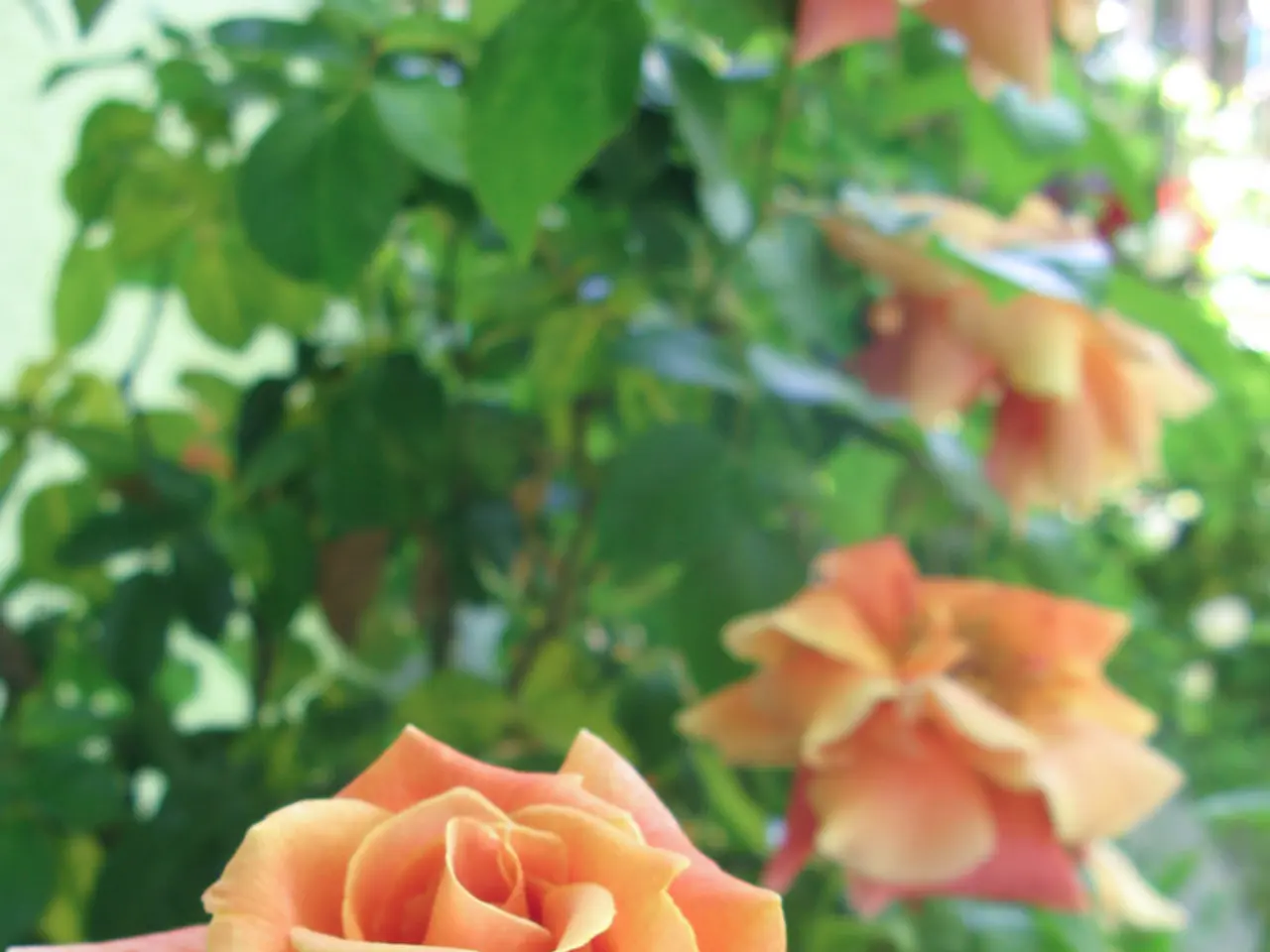Crucial Pest Management Strategies for Rose Gardens
=========================================================================
Roses are a beloved addition to many gardens, but they can be vulnerable to pests such as aphids and mildew. However, you can keep your roses healthy and pest-free using natural pest control strategies. Here's a guide to identifying common rose garden pests and controlling them without harsh chemicals.
Identifying Pests in Your Rose Garden
Aphids
Small, soft-bodied insects found mostly on the undersides of rose leaves and new growth, aphids often cluster in groups and excrete sticky honeydew attracting ants.
Mildew (Powdery Mildew)
Appearing as white or gray powdery spots on leaves, stems, and buds, mildew can cause distortion of new growth.
Controlling Pests Naturally
Insecticidal Soap Spray
Mix 1 tablespoon of pure liquid Castile or mild dish soap with 1 quart (4 cups) of water to create a spray that suffocates soft-bodied pests like aphids and spider mites without harming beneficial insects. Spray affected plants thoroughly, especially undersides of leaves, every few days until pest pressure subsides.
Essential Pest Control Mixtures
- A garlic and soap spray (crushed garlic steeped in water plus a drop of mild soap) makes roses less attractive to aphids by masking their scent.
- A mixture including crushed peppers, mild soap, and water can be used to deter other pests respectfully.
Companion Planting
Plant aromatic herbs like lavender near roses, which repel pests like aphids and rabbits due to strong scents. Other herbs such as chives, garlic, and nasturtiums can dissuade aphids and help attract beneficial insects. Basil, planted in the rose garden, attracts beneficial insects that prey on pests.
Encourage Beneficial Insects
Introduce or attract natural predators such as ladybugs, lacewings, and parasitic wasps that prey on aphids and other pests. Avoid broad-spectrum chemical pesticides that kill beneficials to maintain a natural predator-prey balance.
Physical and Cultural Controls
- Spray leaves with water jets to physically knock off aphids each morning.
- Remove and destroy infected leaves promptly to reduce mildew spread.
- Ensure good air circulation and avoid overhead watering to minimize mildew development.
Using these methods together creates an environmentally friendly, effective pest control regime that keeps your roses healthy without harmful chemicals.
Maintenance Tips
- Water roses deeply but infrequently to encourage deep root growth.
- Prune in early spring to remove dead or weak wood and promote new growth.
- Mulch helps retain moisture and suppress weeds.
- Fertilize during the growing season to provide necessary nutrients.
By regularly monitoring your rose garden and catching pest problems before they spread, you can keep your roses looking beautiful and healthy. Homemade solutions like soapy water or neem oil can be used when pests are spotted. Using natural pest control methods helps the environment by avoiding the use of toxins and provides a safe environment for family and pets.
In the guide to maintaining a healthy rose garden, home-and-garden practices such as insecticidal soap spray, essential pest control mixtures, companion planting, and physical and cultural controls can be used to combat common pests like aphids and mildew, ensuring a beautiful and thriving garden lifestyle. Additionally, by introducing beneficial insects and using natural solutions, you can create an environmentally friendly space that supports biodiversity and keeps your roses healthy and pest-free.




